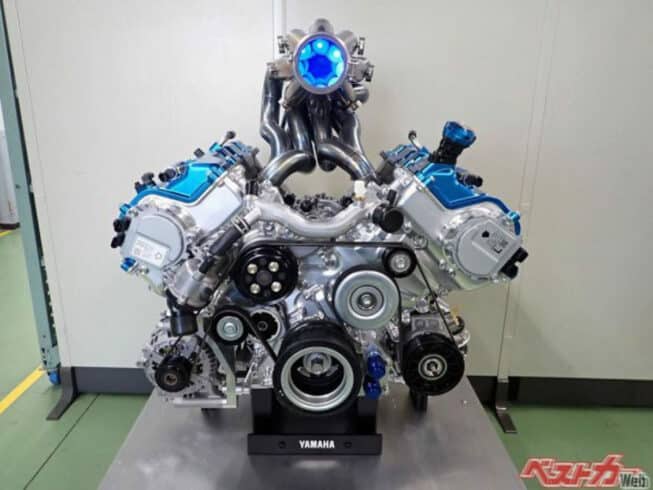YAMAHA
 Brand launches the first hydrogen-powered V8 engine in the automotive industry
Brand launches the first hydrogen-powered V8 engine in the automotive industry
Yamaha is very famous for producing thrusters for the automotive industry and has even ventured to create its own car models, but these were just concepts. Still, even as a major player in motorcycles and musical instruments, Yamaha remains firm in engineering for the future, and has now launched the first hydrogen-powered V8 engine.
That's enough to move Lexus' massive coupe as well as the LS sedan. The change to the V8 5.0 engine made by Yamaha for the automotive industry states that Toyota will not only use a hydrogen powered engine in the most modest models.
Toyota advances the use of hydrogen in the automotive industry...Toyota uses hydrogen on the tracks with the Corolla in the touring version, with a variant of the G16E-GTS engine, from the GR Yaris. That same thruster is put on the production Corolla, just like for the next Prius. It can be used on all GA-C (TNGA) based models. If the intention is to further increase the presence of the hydrogen engine in the brand's cars, the automaker can use an intermediate propellant between the 1.6-liter three-cylinder or the Lexus 5.0-liter V8 engine. In this, a 3.0 V6 or a four-cylinder can be in between.
As it doesn't just place its bets on electric cars, Toyota wants more options to stay on top. With the use of hydrogen cells in the automotive industry, it should meet the demand for cars that use CNG and operate in a more consolidated way in countries such as the USA and China, in addition to the European Union. In national territory, flex technology is already being explored.
Learn how hydrogen powered engines work...Unlike hydrogen-powered electric cars, which use a battery to power the engine through a chemical reaction between oxygen and hydrogen, these engines generate energy through combustion. It works in a similar way to a gasoline engine: the fuel cell is filled with hydrogen gases, where the mixture is compressed by the pistons from which the energy for the networks comes. The differences are in the exhaust and injection systems, in addition to not needing heavy batteries, as in 100% electric or hybrid cars. According to Naoyuki Sakamoto, Toyota's chief engineer, the company wants to propose different solutions to meet regional needs in each part of the world.
One of the main impasses for the Japanese company in the manufacture of the hydrogen-powered engine is to create an injection system that has the ability to manipulate the fuel and, at the same time, achieve a stable burning.
Autonews

Nenhum comentário:
Postar um comentário